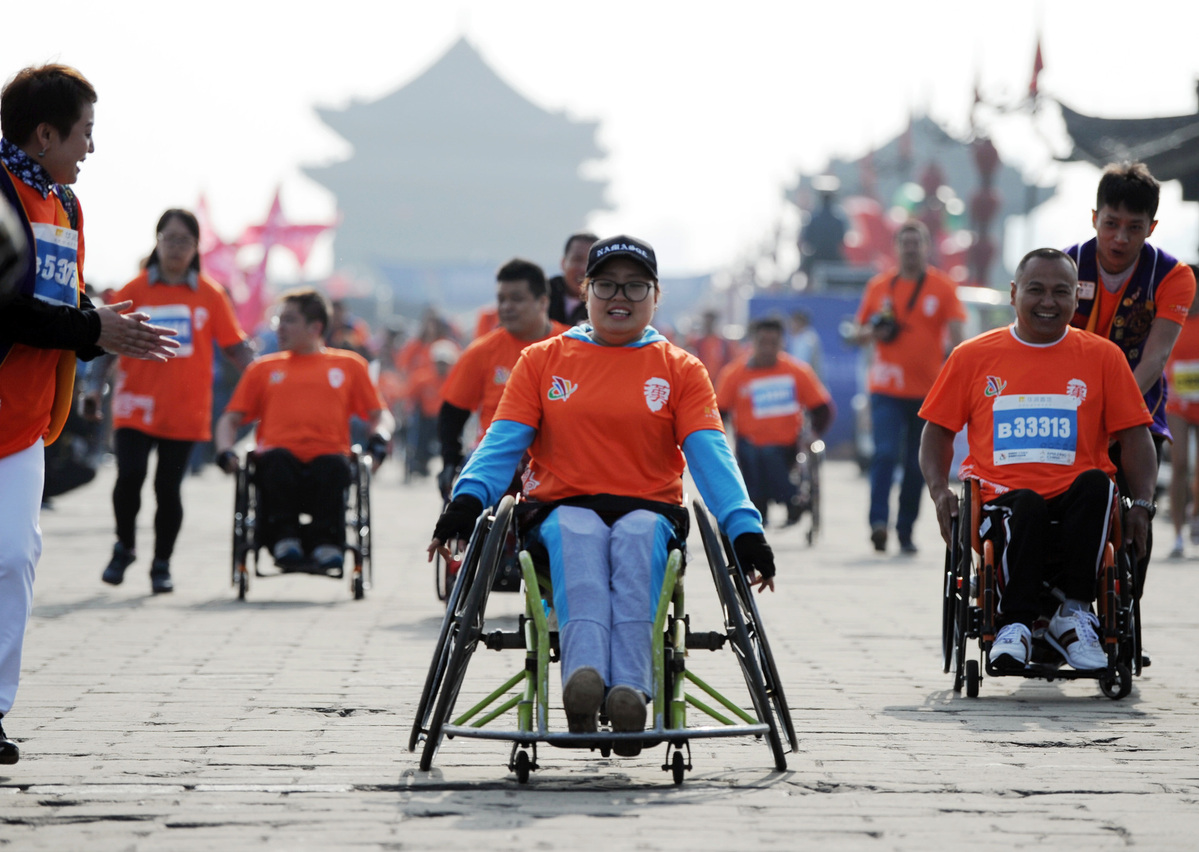The role of disabled in society
- By Eugene Clark
 0 Comment(s)
0 Comment(s) Print
Print E-mail China.org.cn, May 29, 2021
E-mail China.org.cn, May 29, 2021

On May 16, Tokyo held a ceremony to mark the 100-day countdown to the start of the Paralympic Games. Looking ahead, the 2022 Paralympic Winter Games will be held in Beijing and the adjacent city of Zhangjiakou in north China's Hebei province.
Hosting the Paralympic Games will help draw attention to the need for countries to do more to ensure equal opportunities for all people in society.
It is important to recognize the tremendous contributions made by disabled citizens. The games will also highlight countries' great progress in improving the quality of life for their citizens. The U.N. Human Development Index (HDI) is an important measure of the progress being made.
The HDI compares the health, education and income levels achieved by 189 countries in the Human Development Report. The indicators used in the 2020 report were life expectancy at birth, expected years of schooling for children, mean years of schooling for adults, and gross national income per capita.
A value above 0.800 is classified as very high, between 0.700 and 0.799 high, 0.550 to 0.699 medium and below 0.550 low. China's HDI value, stated in the 2019 data/2020 Report, is 0.761, placing it in 85th position among 189 countries and territories – a tremendous improvement over the last few decades.
Life in China for people with disabilities has improved significantly, and more achievements are expected to be seen as the country has been stepping up efforts to ensure all citizens realize the goal of achieving "equality, participation and sharing," as expressed in the 2019 White Paper on China's 70 years of progress in addressing the needs of the disabled.
This is a multi-faceted task involving much more than hosting the Paralympics. For example, there must exist a regulatory framework that recognizes and supports the needs and rights of the disabled.
Governments must also commit the resources required to meet the various needs of the disabled; for those with multiple disabilities, these can be substantial.
It also requires human resources, involving people who are trained in various health, education and training specializations involved.
Technology is also playing an increasingly important role in meeting the needs of the disabled and providing them with new opportunities. The digital economy has expanded opportunities, but more can be done to be inclusive and encourage access and participation by all citizens.
Websites, for example, should make provisions for those who may be hearing or sight impaired. Buildings, hotels, public transport and other public venues need to be more wheelchair friendly.
Another example of expanded opportunities is the design of a new soccer ball with ball-bearings inside and use of other new features that will make it possible for the sight-impaired to play soccer.
Modern media also play an important role in educating the public about the needs of the disabled and also changing society's image of them, so there is greater focus on their special abilities rather than on their disabilities.
As Robert M Hensel wrote: "Know me for my abilities, not my disability. I don't have a dis-ability, I have a different-ability." Hensel was born with a birth defect known as spina bifida. He is a Guinness World Record holder for the longest non-stop wheelie in a wheelchair, over a distance of 6.178 miles.
Supporting our disabled citizens involves much more than being equitable and fair. This truth is captured by Joey Reiman who noted that: "….What I learned was that these athletes were not disabled, they were superabled. The Olympics is where heroes are made. The Paralympics is where heroes come."
Indeed, the society's most disabled citizens provide all of us with important lessons. They show us the meaning of "grit" and determination. They demonstrate confidence, creativity and positivity. The loser will fail 99 times and then give up.
To succeed, you must be patient and never give up. You must always learn from your failures, adapt, and move on. They remain positive and confident.
With COVID-19 and the many other issues now facing the world, our Paralympians show us that the human spirit is resilient. They provide proof that we are capable of much more than we could ever imagine. These are important lessons for each and every one of us, especially when we realize that almost every one of us will likely be disabled at some point in our lives. As Helen Keller noted: "Optimism is the faith that leads to achievement. Nothing can be done without hope and confidence."
Eugene Clark is a columnist with China.org.cn. For more information please visit:
http://m.formacion-profesional-a-distancia.com/opinion/eugeneclark.htm
Opinion articles reflect the views of their authors only, not necessarily those of China.org.cn.
If you would like to contribute, please contact us at opinion@china.org.cn.





